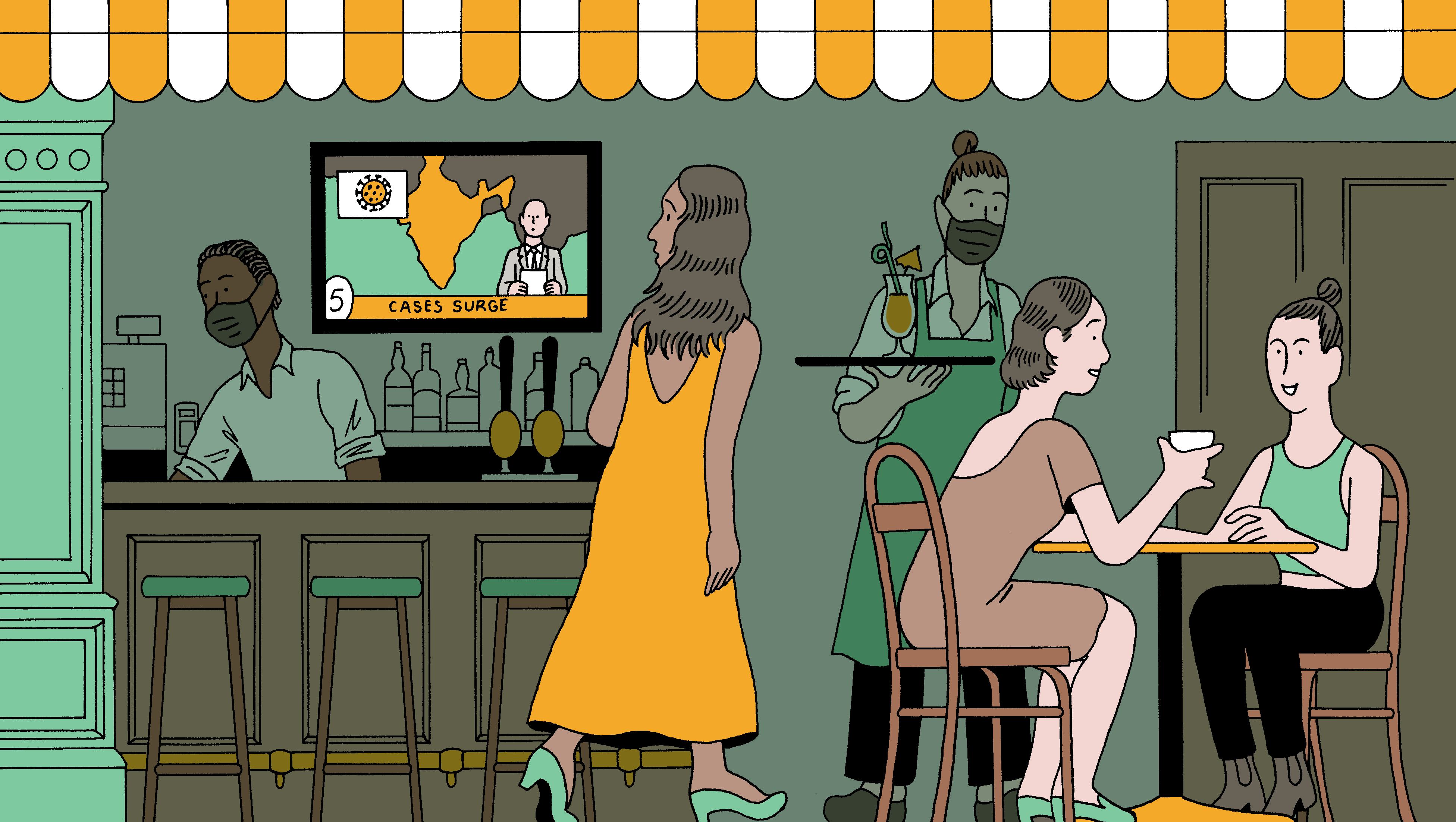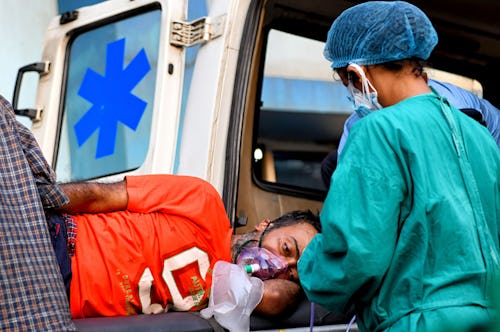
Another day yields yet another beach post filled with grinning unmasked faces, crashing waves, and clear blue skies captioned #hotvaxsummer. Of course, I double tap because after skipping summer 2020, everyone’s vacation is worth celebrating. In fact, after nearly 18 months of a raging pandemic thwarting any inkling of fun, these images of carefree revelry are important visual mementos of our collective healing.
A year ago, the idea of being unmasked and fully vaccinated seemed painfully impossible. And now, with virus rates on a steady decline across the country, many of us are living the dream of crawling out of our bunkers and being present in the world again. In my hometown Newberry, South Carolina, I am already having a June filled with boisterous fam-jams, banter-filled barbecues, and warm-weather cocktails. I actually have 4th of July plans where I’ll see friends way beyond my pod. It’s both incredible and overwhelming.
In this moment of happy transition, while it feels strange to take off my mask, I’m trying to embrace it. However, all of the happy social media posts, the parties, the hugs, and the reunions have made me hyper aware of my privilege — specifically as a person of Indian descent living in America. See, my Hot Vax Summer is routinely embedded with reminders of the harsh reality my relatives in India are facing. Just a couple of weeks ago, every American news outlet was covering the sheer horror of the second wave of COVID-19, and now, experts say India is on the edge of a third wave. While the media coverage has slowed down, the conditions there are still dire.
It feels surreal that I was able to get (a very effective) vaccine, and that I can now browse in malls, dine in restaurants, and see my friends again when my cousins in Patiala, Punjab are still stuck at home, worrying about the next time they can go back to their school. My aunt in Delhi, who contracted the virus, struggled to breathe for six days before she was able to receive medical oxygen.
My 80-year-old uncle who also resides in Punjab is both diabetic and a heart attack survivor which puts him at severe risk for both catching COVID-19 and suffering immensely from its complications. Even though this is supposed to be my summer of social connection and emotional healing, I’m filled with near constant anxiety wondering how and when the pandemic's grip on India will ease.
Back here in the States, it already seems that COVID-19 is starting to become an obstacle of the past — even though some regions are better equipped than others to start considering going back to “normal.” Grand re-openings and adjusted mask mandates are becoming nearly ubiquitous and the virus almost seems to have disappeared entirely. While it certainly has not — and researchers warn us about variants — this freedom to roam, unfettered by paralyzing fear, is a luxury my relatives aren’t yet able to imagine.
To say that I’m stuck at the intersection of gratitude and guilt is an understatement.
India, a still developing country with a population of nearly 1.4 billion, has been dealing with crumbling housing and healthcare systems, unrealiable leadership, and devastated families due to COVID-19. Like my aunt, many other people are struggling to find hospitals with vacant hospital beds and medical oxygen. Meanwhile, India’s virus-related death rate has been increasing; the country claims to have lost 359,676 people, but it’s no secret that these casualties have been underreported.
Meanwhile, another potentially deadly illness called black fungus (Mucormycosis) has been attacking the bodies of more thousands of people; it typically affects those with weakened immune systems, such as patients recovering from COVID-19. My uncle in Punjab contracted and survived the virus, only to be infected by black fungus just a week later. He nearly lost his eyesight as he battled to receive care from overcapacity hospitals with minimal anti-fungal medication. This is the kind of trauma that’s often relayed to me over anxiety-ridden WhatsApp messages while bars and restaurants overflow with justifiably joyful people around me.
Typically, Mucormycosis can be treated and eradicated by the anti-fungal medicine Amphotericin B, generally delivered via injection. However, because of yet another medical shortage, many people are unable to get the injection, so the Delhi government has created a committee to decide who gets the medication on a per case basis. Therefore, hospitals have to apply to receive the shot for patients, which takes time and has left many critically ill patients without adequate care.
After many phone calls and help from family friends who work in the medical field, my uncle was able to receive the injection. If it wasn’t for those connections, my uncle would have succumbed to the choking hands of a broken healthcare system that routinely fails to serve the disenfranchised. I’ve watched my relatives’ — and all of India — struggle from afar for months. Their oxygen and medical supply shortages, their hopelessness, and their ignored calls for help have left me here, oceans away, questioning the validity of my “post-pandemic” summer.

There’s a complexity to my existence here in the U.S., and to say that I’m stuck at the intersection of gratitude and guilt is an understatement. While our healthcare system is far from perfect, I have security and safety here in many ways that my relatives don’t. How am I supposed to fully enjoy my post-pandemic summer when the thought of my 67-year-old grandmother struggling to get the vaccination hovers over my head? I haven’t been able to hug her since 2018 and wondering about the next time I will is a thought I contend with daily.
Being an immigrant often means being away from loved ones, which can be especially challenging in times like these. But I've never experienced a chasm this wide between my experience and theirs. With my loved ones’ fate completely out of my control, I relentlessly vacillate between feelings of relief and fear, delight and anxiety. Every time I see an unread message on my WhatsApp, I'm gripped with anxiety; will it be tragic news or an update that deepens the divide between us? For now, I have to sit with the tension between gratitude and guilt. Let Lukewarm Vax Summer begin.







